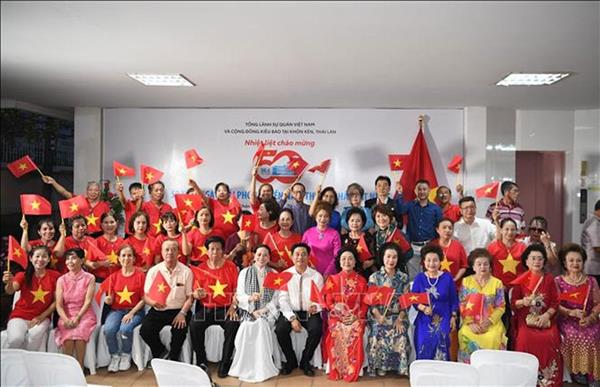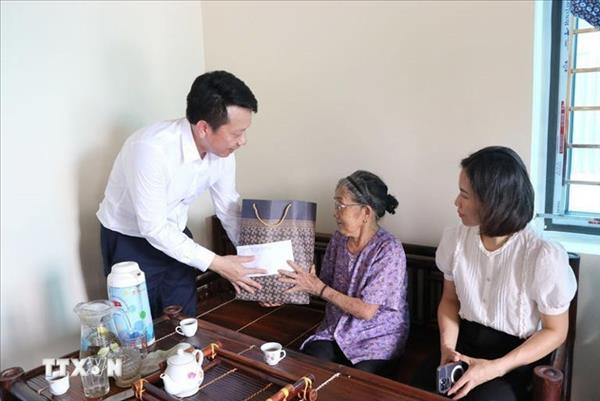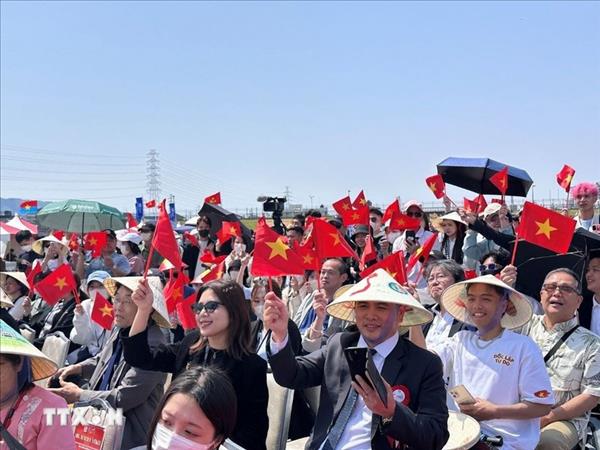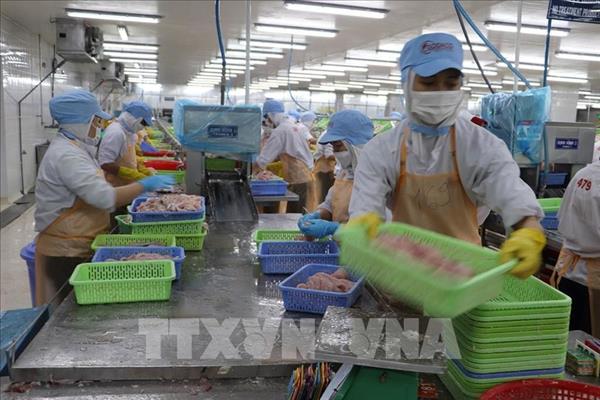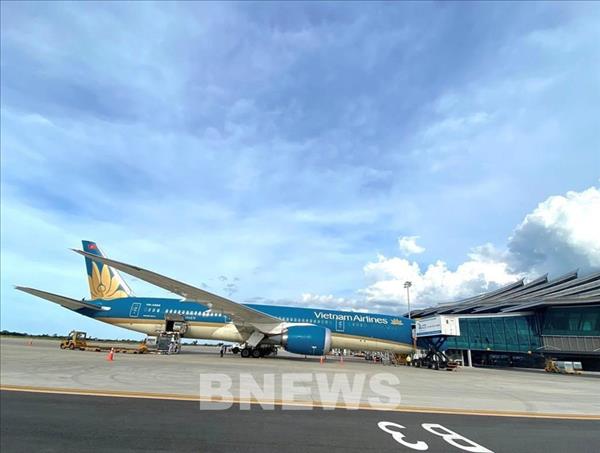Can Tho, June 22 (VNA) – A roundtable dialogue on increasing added value of Vietnamese shrimps took place in the Mekong Delta city of Can Tho on June 21with the participation of more than 100 businesspeople and farmers in the region.
The shrimp sector plays a very important role in Vietnam’s agriculture, bringing home over 3 billion USD from exports and creating 2 million jobs each year. However, shrimp farming in the country has a small scale, lacks linkages and suffers higher production costs than that of its main competitors, such as India and Thailand.
According to the Vietnam Association of Seafood Exporters and Producers (VASEP), in the first five months of 2017, the country’s shrimp exports grew just 4 percent from the same period last year, earning over 1.14 billion USD. During the period, Vietnamese shrimp exports recovered in the markets of Japan, the EU and Republic of Korea, while witnessing drops in the US, China and Australia.
Dr Tran Dinh Luan, Deputy General Director of the Fisheries Department, said his department has carried out a range of measures to foster the sector’s sustainable development, including the application of science-technology and suitable farming models in response to climate change.
Localities were also requested to increase environmental observation and management so as to grasp timely information about the environment, diseases and solutions, thus helping farmers take prompt response.
Christian Henckes, Programme Director of the Integrated Coastal Management Programme (ICMP) at the German Society for International Cooperation (GIZ), said import markets of Vietnamese shrimps care about not only product quality but also the entire production process, including sustainable and environmentally-friendly factors.
He told participants that GIZ is working closely with the Ministry of Agriculture and Rural Development and Departments of Agriculture and Rural Development to turn shrimp breeding into a modern and high-productivity industry not only in the Mekong Delta but also in the whole country.
Participants said it is high time for Vietnam to optimize the sector’s advantages by publicising input materials, improving the quality of shrimp varieties and feed, and building a national trademark.
At the dialogue, delegates also made recommendations to an action plan to develop the shrimp sector through 2025, which is expected to turn Vietnam into an environmentally-friendly shrimp production hub in the world.
The shrimp sector plays a very important role in Vietnam’s agriculture, bringing home over 3 billion USD from exports and creating 2 million jobs each year. However, shrimp farming in the country has a small scale, lacks linkages and suffers higher production costs than that of its main competitors, such as India and Thailand.
According to the Vietnam Association of Seafood Exporters and Producers (VASEP), in the first five months of 2017, the country’s shrimp exports grew just 4 percent from the same period last year, earning over 1.14 billion USD. During the period, Vietnamese shrimp exports recovered in the markets of Japan, the EU and Republic of Korea, while witnessing drops in the US, China and Australia.
Dr Tran Dinh Luan, Deputy General Director of the Fisheries Department, said his department has carried out a range of measures to foster the sector’s sustainable development, including the application of science-technology and suitable farming models in response to climate change.
Localities were also requested to increase environmental observation and management so as to grasp timely information about the environment, diseases and solutions, thus helping farmers take prompt response.
Christian Henckes, Programme Director of the Integrated Coastal Management Programme (ICMP) at the German Society for International Cooperation (GIZ), said import markets of Vietnamese shrimps care about not only product quality but also the entire production process, including sustainable and environmentally-friendly factors.
He told participants that GIZ is working closely with the Ministry of Agriculture and Rural Development and Departments of Agriculture and Rural Development to turn shrimp breeding into a modern and high-productivity industry not only in the Mekong Delta but also in the whole country.
Participants said it is high time for Vietnam to optimize the sector’s advantages by publicising input materials, improving the quality of shrimp varieties and feed, and building a national trademark.
At the dialogue, delegates also made recommendations to an action plan to develop the shrimp sector through 2025, which is expected to turn Vietnam into an environmentally-friendly shrimp production hub in the world.
VNA/VNP

